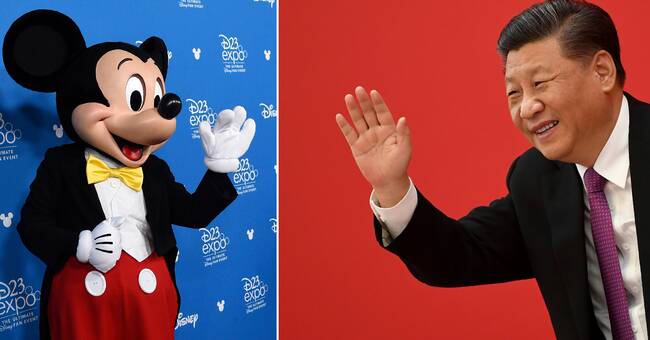This week, Disney has been the subject of large-scale criticism after it emerged that the film Mulan was partly shot in Xinjiang province, where the regime's Uighur detention camp is located.
The area's security bureau is also thanked in the film's subtitles.
At the same time, Disney paints a progressive picture of itself on social media, with posts on Twitter that support Black lives' mats, human rights, and market the company's work for social justice.
Several companies have been criticized
China-related criticism has also been leveled at Disney in the past: A black protagonist shrank so that he almost disappeared on a Star Wars movie poster.
Human rights groups have alerted to brutal conditions in the Chinese factories that manufacture products for Disney.
Companies such as Apple and Nike also have a progressive presence in social media, with a focus on social justice, while being criticized for participating in the exploitation of Uighur penal workers in factories in Xinjiang.
"At risk of being perceived as double standards"
So, what are the risks for companies to have a "progressive" presence on social media in their home country, while having factories in China, for example?
- The answer to the question is obvious: It risks being perceived as double standards.
The more progressive strategy you have as a company, the more progressive target group you appeal to.
There will be greater risks the longer you go with that strategy, says brand strategist Niklas Turner Olovzon to SVT Nyheter.
He points out that social responsibility has been a strong trend in several industries.
- But it's not just posing with opinions on the left and right.
Some companies use social issues too lightly, and risk being punished for it.
"Of course financial interests"
Why do you think companies support human rights in their home country, and then behave differently in China?
- It is of course economic interests, many companies are dependent on the Chinese market both in the manufacturing process and as a consumer market.
Then it gets charged.
China is a complex country.
How serious is it to be accused of double standards and "posing goodness"?
- There are Twitter storms and calls for a boycott on Youtube, but how the brand is affected, how sales are affected, we have not decided on that yet, says Niklas Turner Olovzon.
The cultural news has previously sought Disney, who did not want to respond to the criticism of Mulan.

